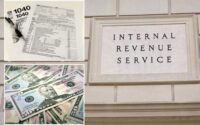Carl Icahn’s firm slashes dividend after Hindenburg’s ‘Ponzi’ claim
Carl Icahn-owned investment firm Icahn Enterprises on Friday halved its quarterly payout, months after short-seller Hindenburg Research accused it of operating a “Ponzi-like” structure to pay dividends.
The company’s shares tumbled 26%, adding to the 35% drop since the short seller disclosed its position on May 2.
Hindenburg said Friday it remained short on the company, in a post on messaging platform X, formerly known as Twitter.
Icahn is one of the industry’s best-known activist investors as he has taken on numerous companies that he believed to be overvalued, but Hindenburg’s attack represented a rare challenge to his own company.
“Icahn Enterprises will eventually cut or eliminate its dividend entirely, barring a miracle turnaround in investment performance,” Hindenburg said when it had announced its short position.
Icahn Enterprises said on Friday it would distribute $1 per depositary unit to its investors for the second quarter, lower than its usual payout of $2 per unit.

Icahn has denied the allegations and has vowed to “fight back” against the short seller’s report, and on Friday took another jab at Hindenburg.
“We do not intend to let a misleading Hindenburg report interfere with this practice (of distributing dividends),” Icahn Enterprises said in a statement.

The billionaire last month disclosed he had restructured $3.7 billion in personal loans to remove a link between his obligation to post collateral and his holding company’s share price, in a bid to undo the damage done by the short seller.
The company reported a net loss of $269 million, or 72 cents per depositary unit, for the three months ended June 30, much higher than the $128 million, or 41 cents per unit loss, a year earlier.


